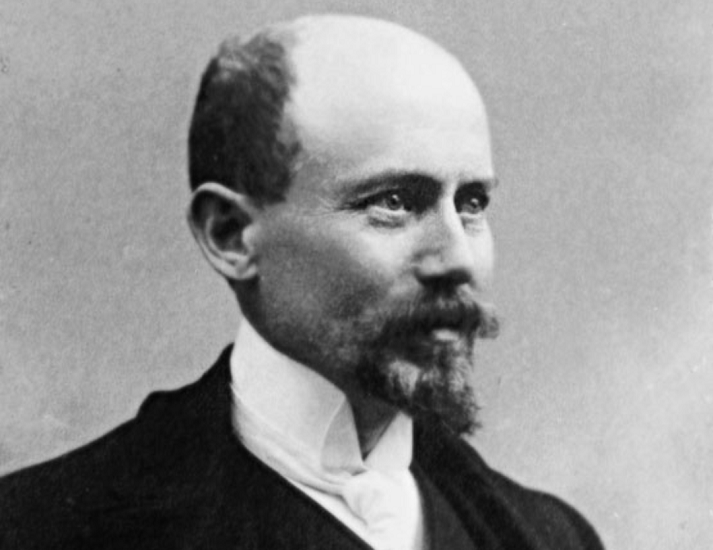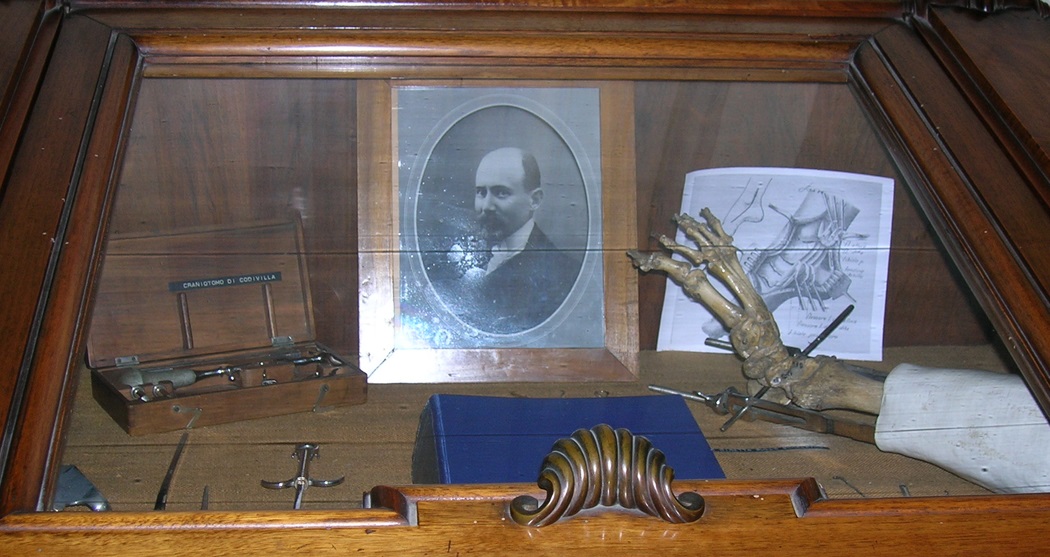Alessandro Codivilla was born in Bologna march 21st, 1861 into a family of modest means. After excelling at high school, he attended the faculty of medicine and surgery, where he graduated with full marks in 1886. He was assistant to Loreta and Poggi, but his financial condition forced him to give up clinical practice and start work in a hospital in Castiglione Fiorentino where he stayed for four years.
In 1894 he became consultant at Macerata hospital. He stayed there for a few months because he was then appointed to a consultancy at Imola hospital. He was still working at this hospital when in 1898 he was offered the job of head of Rizzoli hospital by the administrators.

During the years spent at provincial hospitals he had mostly worked in the field of abdominal, cranial and brain surgery, and was hesitant to accept a post that would have taken him away from general surgery in exchange for surgery of the musculo-skeletal system. Thus, before accepting, Codivilla decided to visit the most important orthopaedic hospitals in Europe to witness the most famous orthopaedic surgeons at work. He became head of Rizzoli on January 1st 1899. In the same year he was appointed independent professor of 'clinical surgery and operative medicine' at the University of Turin, and was later transferred to the University of Bologna. In 1902 he became professor of orthopaedics.
Bader writes: "his figure is dominant in the history of orthopaedics not only for giving Rizzoli international fame, but above all for giving our country standing and dignity in this new field of surgery." He is, in fact, considered the father of orthopaedics in Italy and some of his operations, the result of brilliant intuition and genuine innovation, are still performed in our operating rooms.
He was chairman of the Society of Bolognese Doctors and Surgeons and member of several international and national societies. He was a speaker at the most important international surgical and orthopaedic congresses. He is responsible for reviving the Italian Society of Orthopaedics with the 3rd Congress of Milan in 1906. He took Rizzoli to new heights by making it an arena for international competition when in 1904 he founded the Umberto I international prize for the best work or invention in orthopaedics.
His scientific output was also very high. Of his 124 publications, collected in two volumes by Bartolo Nigrisoli and printed in 1944, 25 are in foreign languages and were published in the periodicals of their respective countries.
He was a brilliant and talented surgeon, admired by Italian and foreign fellow surgeons, but also loved by his fellow-townsmen. This is testified by two framed dedications on the wall either side of the display case. In one there is an excerpt from a letter that the poet Giovanni Pascoli wanted to be read out to the Society of Bolognese Doctors and Surgeons to commemorate a friend he had never known: "Dejected mothers went up the hill with their children, sooner or later they came down consoled. They had given life to those little ones, but it was that saintly man up there who had given them health, strength and a way to live that life." The other is a comment by a colleague of his, Augusto Murri: "Everyone should weep when a light of knowledge like Codivilla no longer illuminates the lives of the unfortunate."
Besides the manuscripts of scientific articles and a portrait of the Master, a display case, in the library, also holds some of his surgical instruments and a heel in traction with a nail.

He stayed at the hospital until 1912, when he died at the age of 51 years old, struck down by a disease he had suffered from since he was a child.
